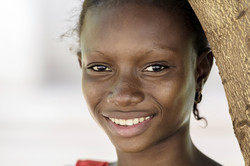Better reproductive health in sub-Saharan Africa
Current RH programmes are failing because of poor integration and adverse cultural norms and practices within the health and education sectors, and also within the wider community. The objective of the INTHEC (Health education and community integration: Evidence based strategies to increase equity, integration and effectiveness of reproductive health services for poor communities in sub Saharan Africa) project was to improve the delivery of RH services in these two countries by providing policymakers with evidence-backed information on access. In support of this goal, researchers conducted surveys to identify priority areas of weakness in RH services. Data were analysed for 6 955 subjects from Niger's Maradi and Tillabery regions, and for 6 524 respondents from the Mwanza and Iringa regions in Tanzania. About half of the subjects were women and half were aged between 15 and 19 years old, the highest age group of adolescents as defined by the World Health Organization (WHO). The other age groups targeted in this survey were 20-25, 26-29 and 30-34. The uptake of treatment services related to sexually transmitted infections was less than 2 % in each age group. And, less than one third of women who had given birth at least once before made use of antenatal services during their most recent pregnancy. Researchers also looked at key equity and gender equality issues and stereotypes. For example, in Niger, a woman is strictly forbidden to express sexuality or to participate in RH activities without her husband's consent. Use of video has facilitated discussion about service availability, especially by giving young people a forum to express their service needs and be heard by health workers. Other interventions include an adolescent RH strategy in health units aimed at the workplace, RH support for teachers, guardians and pupils, and enhanced community referral to health services. For example, in Tanzania the project implemented a confidential mobile phone-based text messaging referral service from grassroots community drug sellers to formal health facilities in order to increase the uptake of RH services by adolescents. A major focus of future INTHEC work will be encouraging recognised local institutions to implement such community-enabling interventions. it is hoped that these measures will ultimately improve community attitudes about the rights of young people. Also, since the government ministries responsible for adolescent RH policy in both Niger and Tanzania are directly involved, INTHEC efforts and outcomes should have an impact supported by local health authorities.







